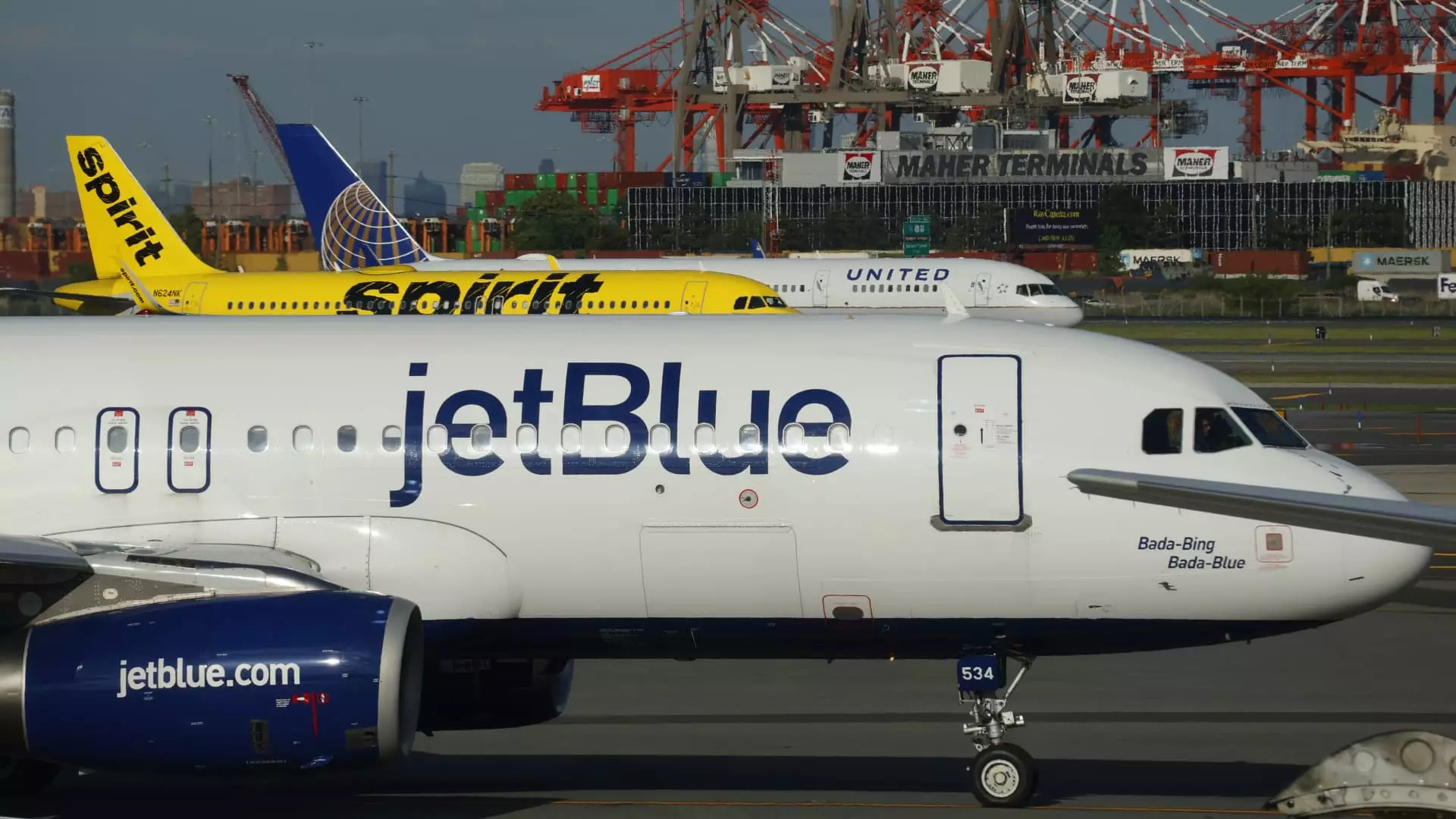The airline industry, which has been severely impacted by the COVID-19 pandemic, is facing a new set of challenges. While airlines have historically been focused on expanding their fleet with new aircraft, the current financial situation has forced them to rethink their strategies. Cash-strapped low-cost carriers and deep discount airlines are now prioritizing cost-saving measures over new investments in planes.
In an effort to return to profitability, airlines such as Spirit Airlines, JetBlue Airways, and Frontier Airlines are deferring deliveries of new aircraft. This decision comes as a response to the oversupply of flights in the market, which has driven down fares and put pressure on revenue. By delaying the receipt of new planes, these airlines hope to better manage their costs and navigate the challenging financial landscape.
Frontier Airlines, for example, recently announced that it is deferring 54 Airbus aircraft deliveries until at least 2029. This move is a result of years of aircraft delivery delays, which have caused a backlog of orders. JetBlue Airways is also opting to defer the delivery of 44 Airbus A321 airplanes through 2029, aiming to save approximately $3 billion in the process. These deferrals allow airlines to adjust their growth plans and adapt to the changing market conditions.
In addition to financial constraints, airlines are also grappling with operational challenges such as grounded jets from engine recalls. The Pratt & Whitney engine recall has significantly impacted airlines like JetBlue Airways and Spirit Airlines, forcing them to ground aircraft and disrupt their operations. For JetBlue CEO Joanna Geraghty, deferring aircraft deliveries presents a double-edged sword as the airline struggles to balance the need for growth with financial sustainability.
Spirit Airlines, which has been facing deep losses, is also deferring aircraft orders as part of its turnaround strategy. The airline reported an 11% drop in revenue and a $192 million loss, prompting it to furlough some 240 pilots. By deferring all Airbus planes on order until at least 2030, Spirit aims to ease the financial burden and streamline its operations.
While budget airlines are deferring aircraft deliveries, the global airline industry continues to face challenges in meeting the demand for new fuel-efficient planes. Lease rates for popular aircraft models such as Airbus A320s and Boeing 737 Max 8s have reached record levels, indicating a scarcity of supply. Airbus and Boeing, the two main suppliers of commercial aircraft, are struggling to increase output due to skilled worker shortages and supply chain disruptions.
Despite the challenges, Airbus remains optimistic about the demand for its A320 family of aircraft, with over 7,000 unfilled orders. Boeing also has a significant backlog of orders for its 737 Max planes. The industry is closely monitoring these developments as airlines navigate the financial impact of the pandemic and adjust their fleet plans accordingly.
As airlines face mounting cost pressures and uncertainty in the market, executives are taking proactive steps to mitigate the impact. Southwest Airlines, for example, has implemented voluntary leave programs for staff in response to delayed Boeing deliveries. By adjusting their fleet plans and growth strategies, airlines are striving to remain agile and resilient in the face of ongoing challenges.
The airline industry is at a critical juncture as carriers adapt to a rapidly evolving market environment. By deferring aircraft deliveries, adjusting growth plans, and addressing operational challenges, airlines are seeking to navigate the financial disruptions caused by the pandemic. As the industry continues to evolve, stakeholders will need to collaborate and innovate to ensure the long-term sustainability of the aviation sector.

